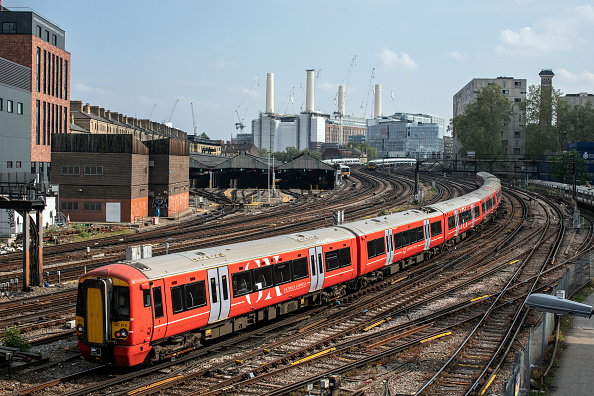There is a light at the end of the London underground if we fight for its funding

Last week, Transport for London was given another short extension on its emergency funding deal. This is hardly anything except another sticking plaster solution, stretched out a little longer, rather than a long-term programme to invest in London’s transport system.
This came the same week that TfL issued a budget update setting out a potentially bleak financial future. It estimates an annual funding black hole of £1.5bn within the next two financial years, due to Covid restrictions hitting transport passenger numbers and fare revenues in London harder than in any other part of the UK.
Over the past two years, TfL has agreed a series of short-term funding agreements with the Government, to ensure it can continue operating rail, bus and other public transport services in the capital. Yet, amidst the financial doom and gloom there are positive signs.
TfL’s passenger forecasts, also highlighted in the update, show that passenger numbers were set to return to 82 per cent of pre-Covid levels by this Easter, were it not for the Plan B restrictions introduced to deal with the Omicron variant.
On Saturday 5 February there were 2.32million Tube journeys according to TfL, which is 76 per cent of pre-pandemic levels and up eight per cent week-on-week.
As we now emerge from the worst of the winter, and with London’s public transport now noticeably busier in recent weeks, there is little reason to suggest that 80 per cent plus figure won’t be hit by the summer. This of course bodes well for rail’s future. It shows that if London’s transport system can go a period of time without restrictions, passengers will return and finances will recover. This is also positive for national rail’s prospects – we could see a revival of train travel on the scale of the 1990s to 2010s, where passenger numbers doubled over 20 years.
However, decision makers will need to hold their nerve in the coming years and continue to believe in, and invest in, our transport system. TfL’s budget update contained a list of major savings through scaling back or “deferring” major projects – that is to say, kicking into the long grass vital rail upgrades that would benefit London’s passengers.
For example, the Piccadilly Line Signalling Upgrade, which would increase capacity and performance on the line, has been “deferred out of scope”. TfL also reported that it hopes to achieve “significant efficiencies” on other projects, including on procuring new trains for the Piccadilly Line and on the Jubilee line, without sharing details of how. Projects like Bakerloo Line Extension and Crossrail 2, once seen as essential for London’s continued success, are not even mentioned.
All of this is a cause for concern. Passengers and businesses – including rail companies of all sizes and located in London and across the country like Goole and Derby who support the capital’s transport system – will soon begin to feel the impact of this funding uncertainty, and the lack of investment in railway upgrades.
Rail is a long-term game. Infrastructure and train improvements take years to deliver, and last decades. Making a decision on these assets based on two abnormal years would be a mistake. Passenger numbers historically always revert to long-term trend growth, even if wars, economic crises or, yes, pandemics, result in short-term dips. And even with some people now still working from home, we have seen a strong demand for leisure travel in the evenings and weekends. Now is the time to embrace, not leave behind, long-term transport investment.
Instead, the Government and the Mayor of London Sadiq Khan must agree a multi-year financial settlement, similar to the funding provided to Network Rail.
Every day, millions of people rely on our trains to travel, whether for education or work, visiting friends and family, or leisure. Nationally, the railways directly support over 700,000 jobs and £43bn in economic growth. In London alone, these figures include almost 160,000 jobs and £13.5bn in growth. The access to essential services, economic boost and social mobility this enables will become increasingly important as we move out of Coronavirus.
It is essential that the Government and Mayor make the most of the next two weeks to agree a deal that will allow TfL to get through the pandemic and invest in the transport network. In turn, the railway industry can play its part in supporting the economy, both in the capital and more widely across the UK.
